19th Century Life at Seven Oaks House Museum
A former merchant’s house, now a museum in Winnipeg, Manitoba, offers a glimpse into nineteenth century life in the Red River settlement
Seven Oaks House Museum sits in a park-like setting in the midst of a residential area in Winnipeg, Manitoba. It was the former house of John Inkster, a prominent merchant and farmer. The two-storey log building was constructed between 1851 and 1853. The museum contains Inkster family furnishings and other period pieces. It offers a glimpse into nineteenth century life in the Red River Colony, a settlement on the Red and Assiniboine Rivers founded in 1812 by Thomas Douglas, the fifth Earl of Selkirk.
Seven Oaks House is listed on Canada’s Register of Historic Places. It is the earliest remaining river lot dwelling. Farm lots along the Red River were long and narrow, so each one had direct access to the river.
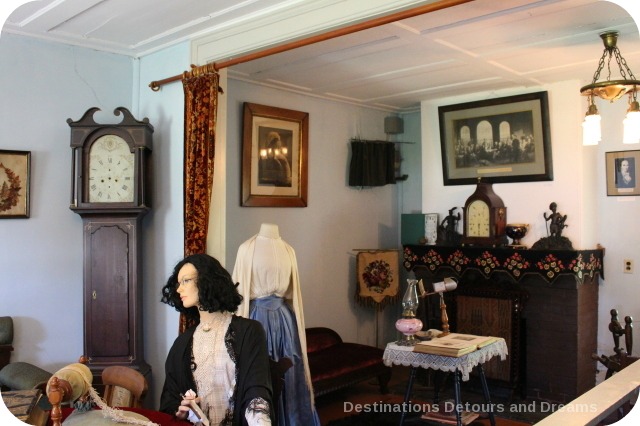
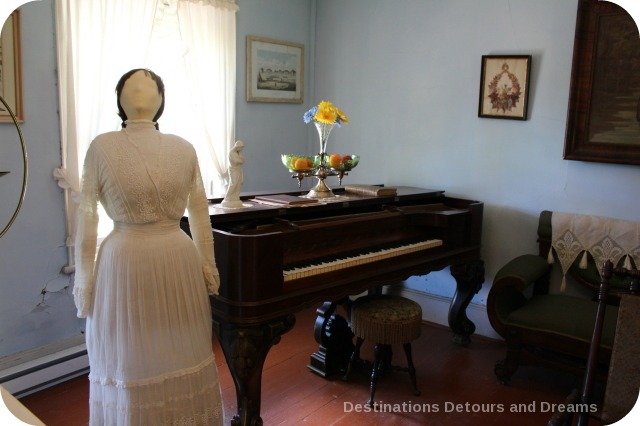
This wedding dress would have been considered extravagant because it wasn’t suitable for wearing again
When I walked into the parlour, it was obvious the Inkster family had been well-to-do. The room was large, the size of an entire house for many other families in the era.
John Inkster came to Canada from Scotland in 1821 as a stone mason with the Hudson’s Bay Company. Shortly after arriving, he bought himself out of service and became a farmer, trader and merchant. He married Mary Sinclair and they had eleven children, nine of which lived to adulthood.
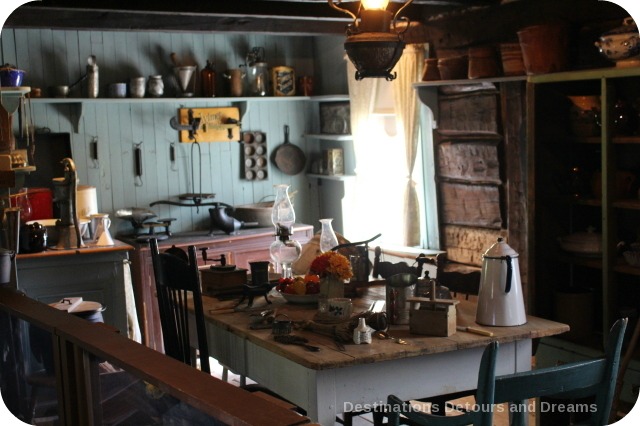
It was the original Inkster family home.
All nine children were born before the larger home was built.
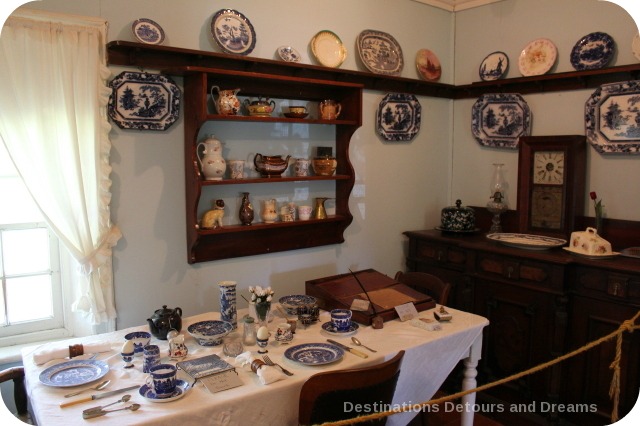
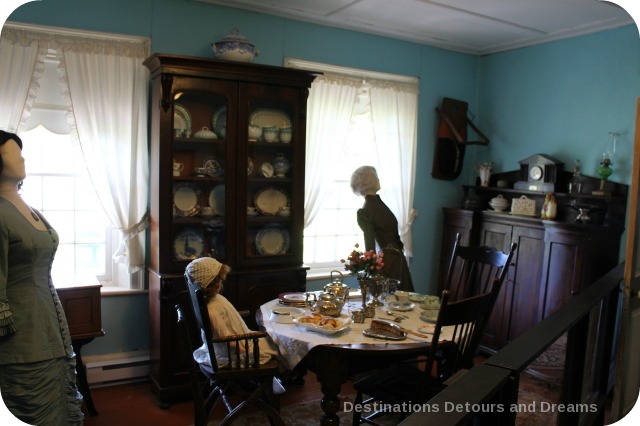
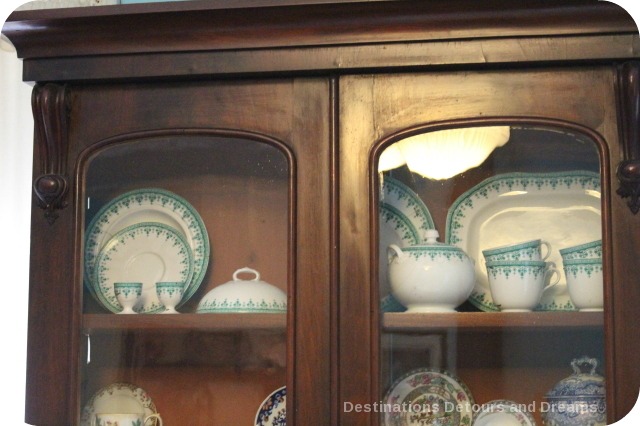
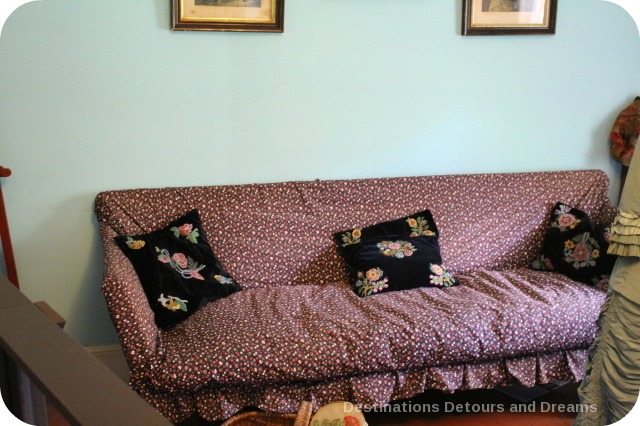
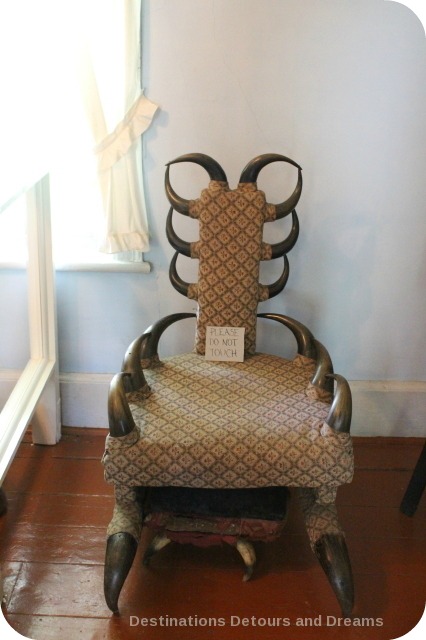
Seven Oaks House gets its name from the seven large oak trees which stood nearby, marking the site of the battle of Seven Oaks fought on June 19, 1816 between servants of the Hudson’s Bay Company, the Selkirk settlers and representatives of the rival North West Company.
One of the Inkster children lived in the house until 1912. The house remained privately occupied until 1954 and opened as a museum in 1958.
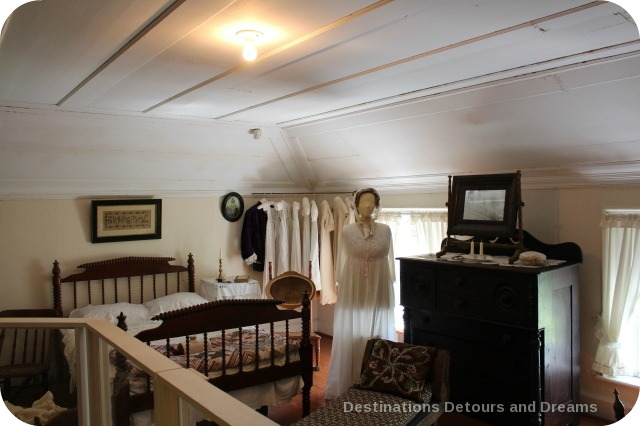
I was surprised to see how large the master bedroom was. The hand-made furniture furnishings represented the 1850s. The chaise lounge was made by John Inkster. Mary Sinclair Inkster suffered from headaches and rested on the lounge. Another bedroom was furnished in the style of the 1870s, when manufactured furniture became common.
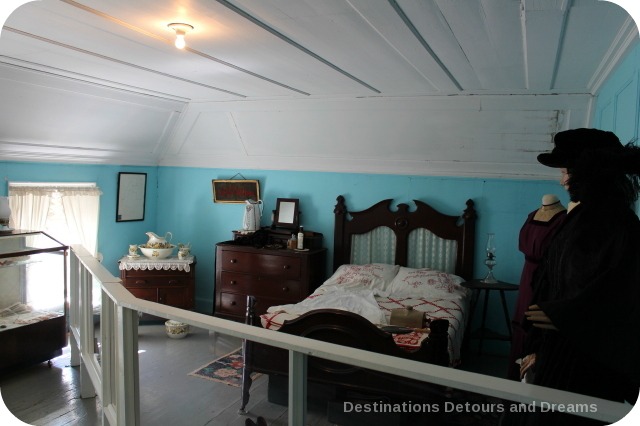
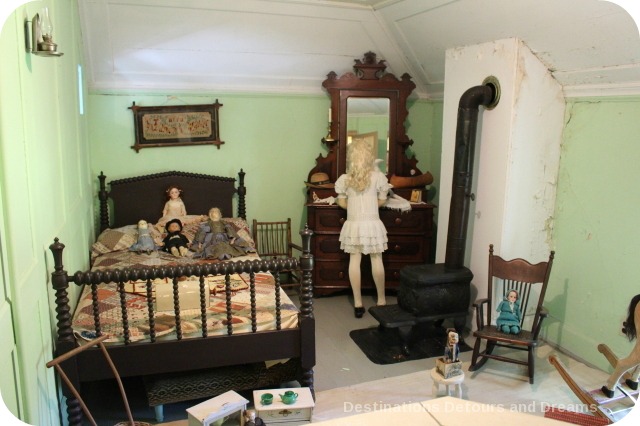
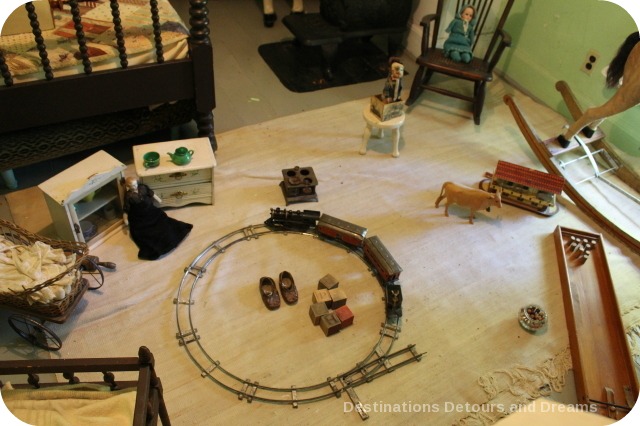
and no family, not even the Inksters, would have had this many.
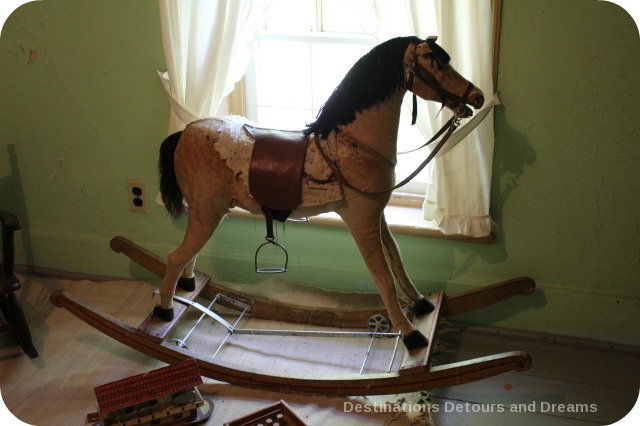
Cool or creepy or both?
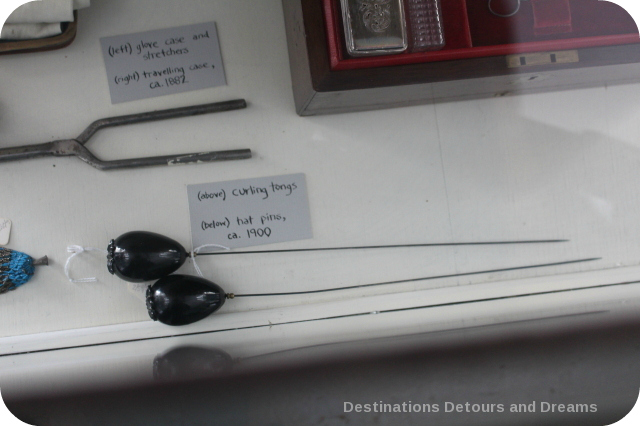
I now understand how Victorian women could use these as weapons.
I toured Seven Oaks House Museum during the Doors Open Winnipeg weekend. An interpreter, a woman in her early twenties, guided me through the house, pointing out items of interest and providing background information. She reminded me of my twenty-one-year-old niece, a history major. Not in looks, but in her enthusiasm, the things she pointed out and the manner in which she provided me with information. Later, when I talked to my niece, I learned that one of her friends worked at Seven Oaks House Museum. There were other interpreters working that day and I cannot confirm with certainty that my guide was my niece’s friend, but I like to think that was the case.
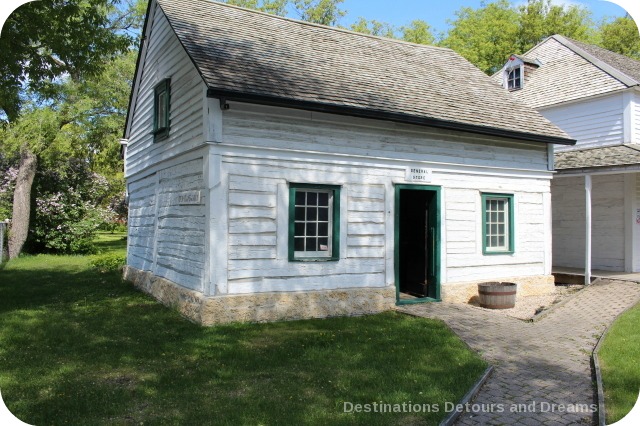
Seven Oaks House Museum provides a great view of nineteenth century life in the Red River Settlement. The many Inkster family belongings contained with the museum give it a very authentic and personal feel. The museum is located off the beaten path at 50 Mac Street. It is open 7 days a week (10 am to 5 pm) from the May long weekend through Labour Day weekend, with interpreters on site. Admission is free. Donations are welcomed.
Never miss a story. Sign up for Destinations Detours and Dreams free monthly e-newsletter and receive behind-the-scenes information and sneak peaks ahead.
PIN FOR LATER
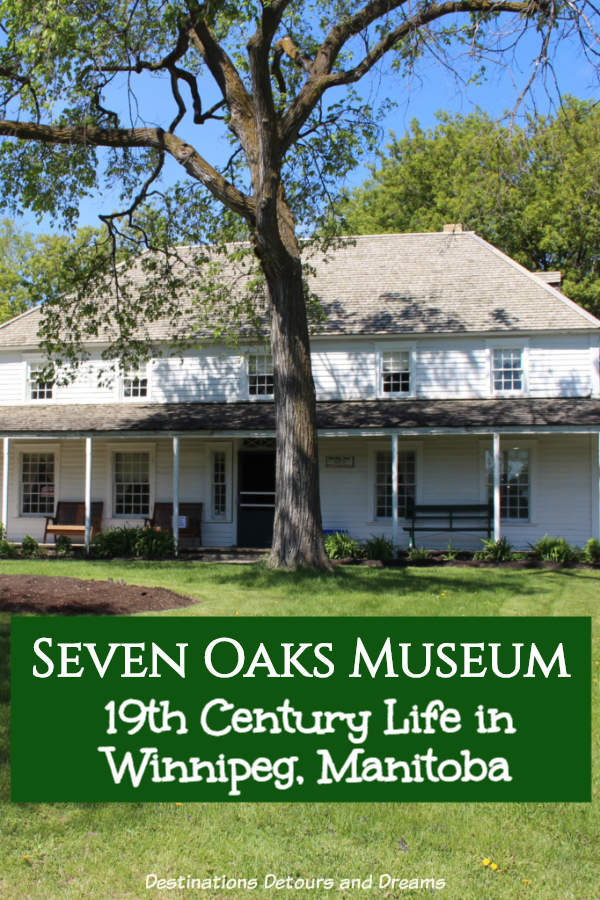

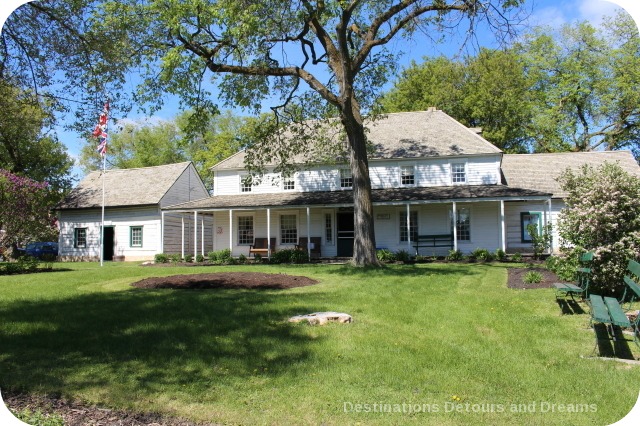
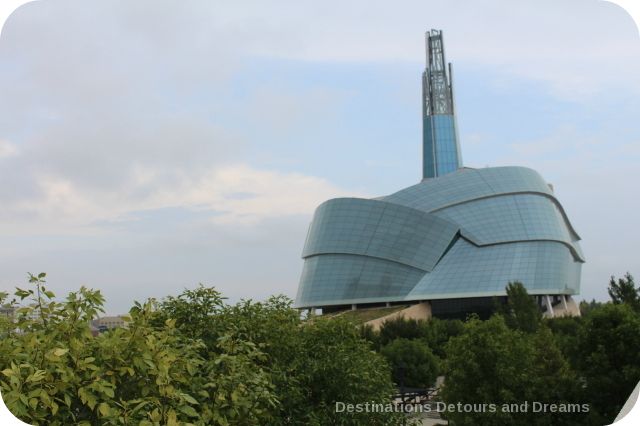
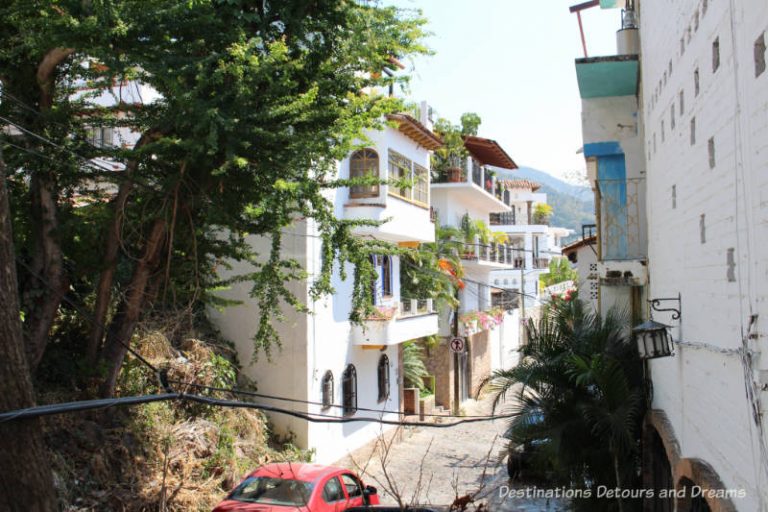
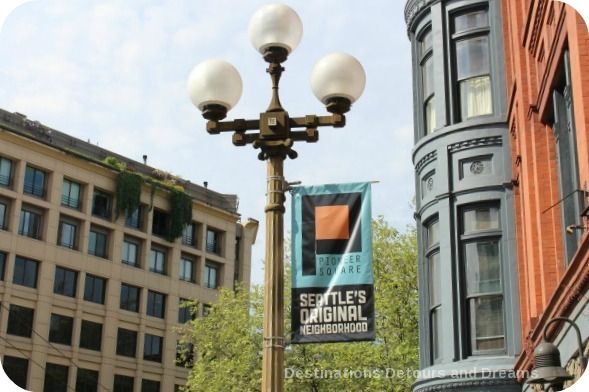
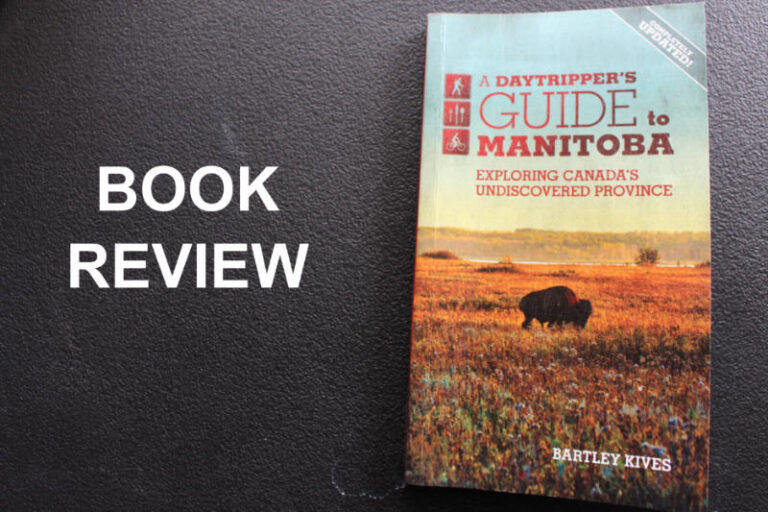
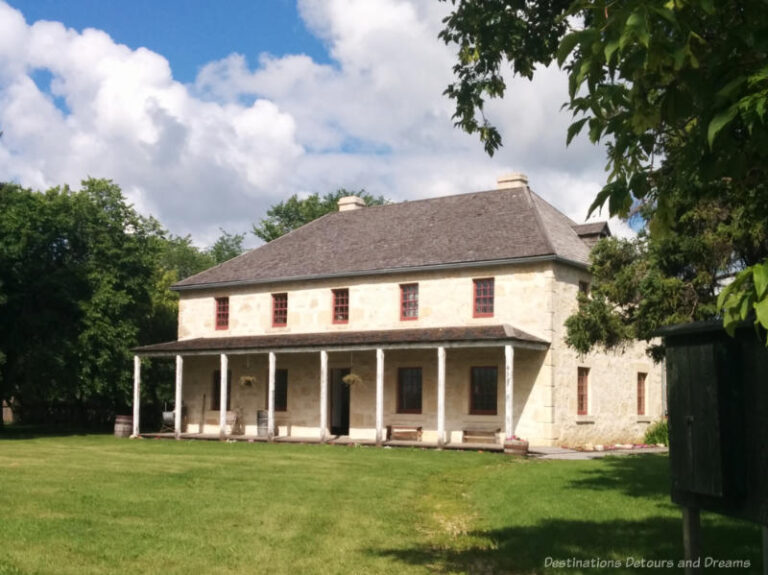
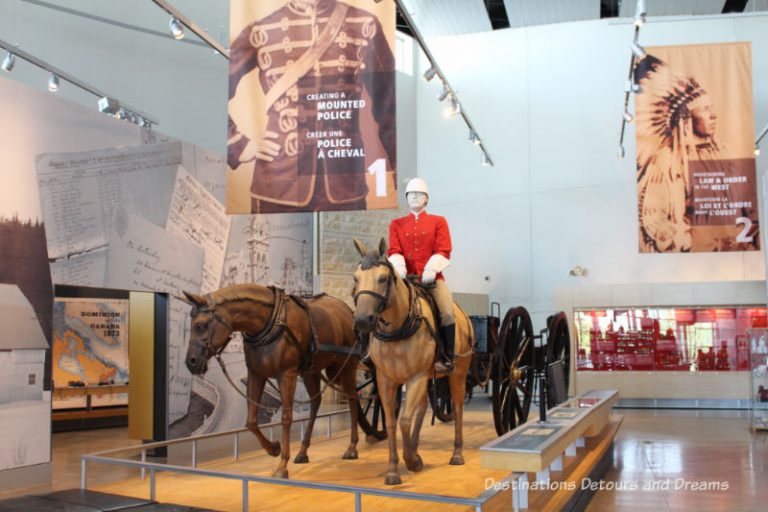
Your pictures of the rooms within the Seven Oaks House Museum so beautifully capture a time and place in the past. What a great perk that entry is free!
The rooms certainly felt real, as if the family might walk in at any time.
So prosperous they must have been to have such a grand residence at the time. The story behind the name of the Seven Oaks House Museum is fascinating, too.
Betsy, yes they must have been well-off. I’ve toured other old houses or replicas of house of the time and in many entire families were living in spaces smaller than this parlour.
I love visiting this kind of home museum… like living history. It’s easy to imagine children running around, the family sitting down to a meal at the table, good smells wafting from the kitchen. Thanks for the visit.
Donna, it was very easy to imagine the family in this house.
Great trip into history Donna. Enjoyed this one!
Thanks Jackie.
What an interesting museum! The chair with the narrow back is interesting. I wonder if it was comfortable. Great pictures.
Sabrina, as with most museums of this type there was no sitting on the furniture allowed, but I think much of the furniture from this time period looks fairly uncomfortable.
Wow, fantastic tour, I love all the colors in the rooms and those collectibles….funny how people seemed to collect a lot of stuff even back then!
Thanks Noel. The stuff we collect may have changed a little, but I guess people have been collecting for ages.
Loved the furniture, especially the upholstered bison-horn decorated chair. Such a treasure. You have such an eye for the details. I don’t at all. We should travel together!
Carol, it would be interesting to see what I noticed and what you noticed if we travelled together. Likely a richer experience for both of us.
I always enjoy touring a house museum. Thanks for taking me along to the Seven Oaks House Museum in Winnipeg, Manitoba, as I might never make it there any other way.
Thanks Carole. I love touring house museums as well.
I love these kinds of tours like the Seven Oaks House Museum where you can get a glimpse into how people lived and the fact that the house is furnished with the family’s belongings is a real bonus. I’ve never seen anything like the Bison Horn chair – very interesting! But, I have to agree with you, I’m not sure if the foal-skin covered rocking horse would be one of my favorite toys, either! Anita
Anita, I was impressed with how much of the Inkster family belongings were still in this house. I haven’t seen that very often.
Thanks for taking us along on your tour of the Seven Oaks House Museum. As a college history major, I still love being able to visit places where real people lived and trying to imagine what their everyday lives were like. From your article, it sounds like the Seven Oaks House Museum is the perfect type of museum for this, especially with an enthusiastic knowledgeable docent.
Suzanne, I too like imaging what people’s lives were like. I think history students make great docents.
Was Colin Robertson Sinclair Inkster a child of the family ? My great great Aunt married him and I would love that hear if a connection
Judith, it is possible there is a connection. One on the children of John Inkster and Mary Sinclair was Colin Inkster (born 1843). He married Ann Tait and one of their children was a Colin Robertson Sinclair Inkster (born 1876). I found that information at http://www.mhs.mb.ca/docs/people/inkster_c.shtml. Whether that is who married your great great Aunt I don’t know, but it is a definite possibility. Cool connection if that is so.